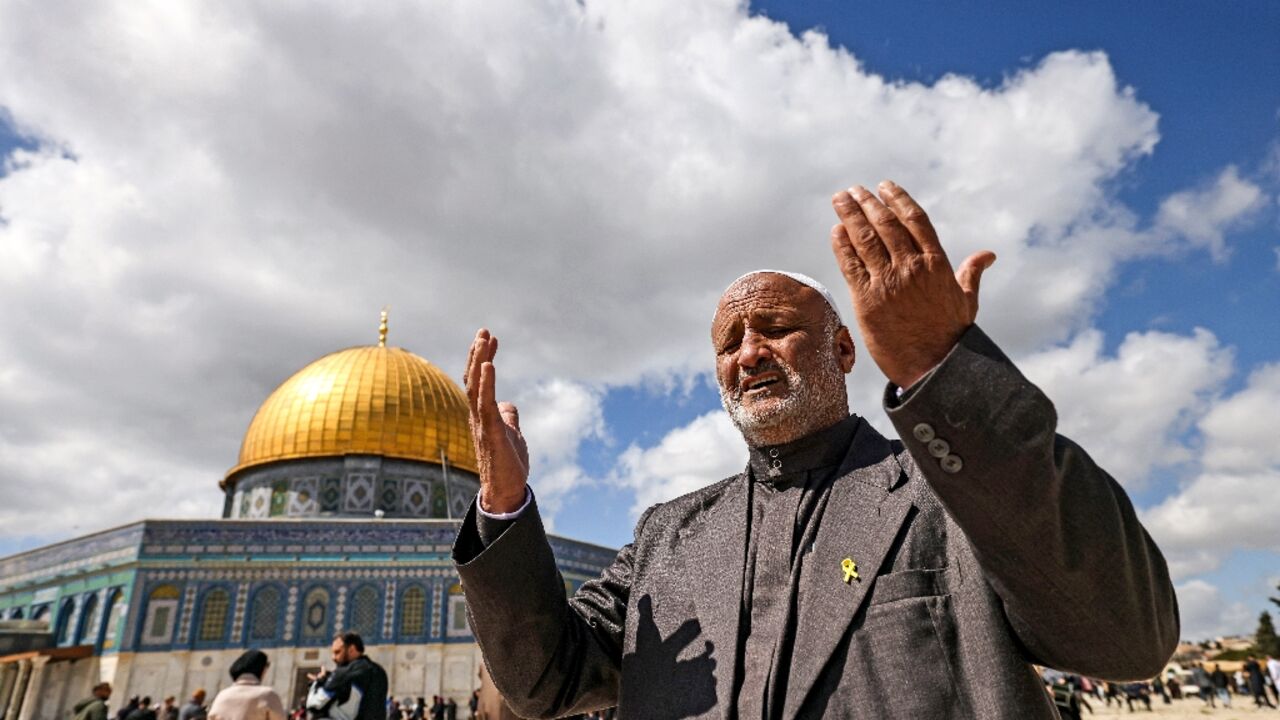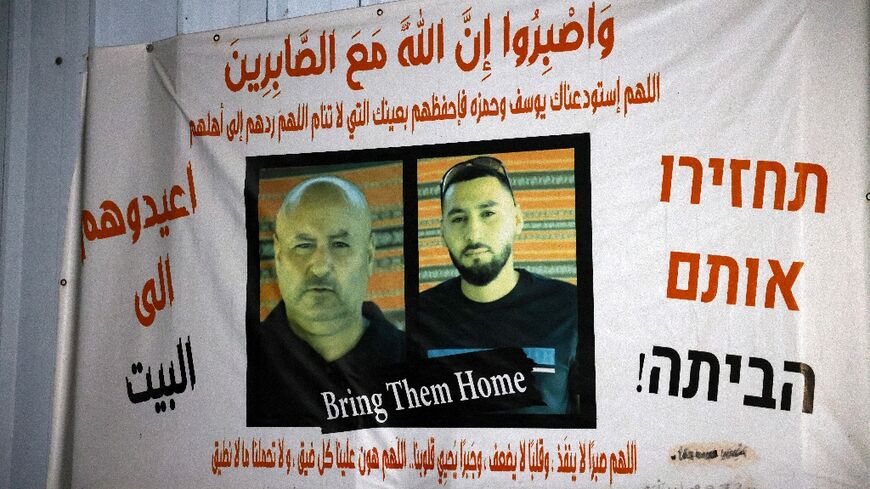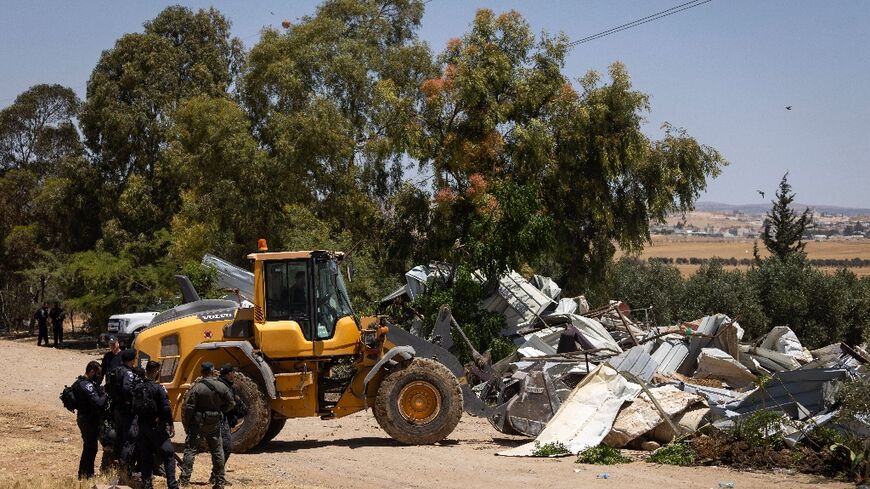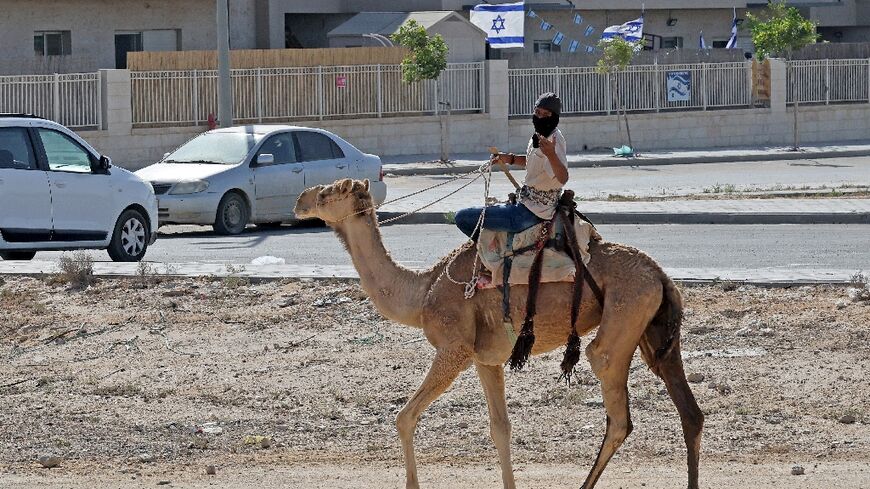Israel's 'scapegoat' Bedouins reel from wartime hardship

After months of waiting in vain for Hamas to release his relatives held hostage in Gaza, Israeli Bedouin Ali al-Zayadna travelled to Islam's third holiest site to appeal directly to the Almighty.
"Oh God, end the captivity of Youssef and Hamza," the 59-year-old said as he knelt at the Al-Aqsa mosque in east Jerusalem, referring to his brother and nephew who were abducted during the October 7 attack that triggered the Israel-Hamas war.
Israel's impoverished and long-marginalised Bedouins -- Arab Muslim descendants of herders who once roamed freely through the Negev desert -- have been hit hard by the war.
They lost at least 17 members on October 7 and several others have been killed while serving in the Israeli military.
Seven others were taken hostage, though two –- Zayadna's nephew Bilal and niece Aisha, both children of Youssef –- were released as part of a week-long truce in November, the only one of the war so far.
Hamas's attack resulted in the deaths of about 1,160 people in total, mostly civilians, according to an AFP tally of Israeli figures.
Israel's retaliatory military campaign has killed at least 32,490 people in Gaza, mostly women and children, according to the health ministry in the Hamas-run territory.
Prime Minister Benjamin Netanyahu's government has highlighted the Bedouins' sacrifices and, in meetings with prominent Bedouins, vowed to improve the government services they receive.
"All the people have stood in solidarity with each other, as if the kidnapped people belonged to everyone. All the people rallied around each other," Zayadna told AFP.
Yet there is scepticism over whether high-level attention paid to the Bedouins in wartime will actually improve their position in the long run.
"Now is the time of hugging, but the day after the war everything will go back to what it was before," said Kaid Abulatif, a film director from the mostly Bedouin city of Rahat.
"The Bedouin is a scapegoat."
- 'Off the grid' -
Prior to Israel's creation, the Negev desert in southern Israel was home to an estimated 92,000 Bedouins, but only 11,000 remained within state boundaries after the 1948 Arab-Israeli war, according to Adalah, an organisation that promotes Arab minority rights in Israel.
Many of those resisted resettlement in towns, and Bedouins have occupied an uneasy place in Israeli society ever since.
Israeli military leader Moshe Dayan told the newspaper Haaretz in 1963 of his desire to "transform the Bedouin" into "an urban person who comes home in the afternoon and puts his slippers on" and whose "children would go to school with their hair properly combed".
"This would be a revolution, but it may be fixed within two generations... this phenomenon of the Bedouins will disappear," he added.
Today there are about 300,000 Bedouins in Israel, according to Adalah, roughly half in towns and cities and the other half in so-called unrecognised villages.
These villages lack even basic services like trash collection and are not protected by the Iron Dome air defence system, leaving Bedouins vulnerable to rocket and mortar fire from Hamas-run Gaza.
"They don't get any investment, they are off the grid," said Chris Doyle, director of the Council for Arab-British Understanding who has researched Israel's Bedouins since the 1990s.
Bedouins' resistance to assimilation is consistent with "their way of life", Doyle said, but it has nevertheless fuelled negative coverage in the Israeli press.
"Before the war, in the media there was a delegitimisation of anything related to the Bedouins," Abulatif said.
"All the time stories about vandalism, on how lawless they are, on how the Negev is a wild west. For some people the Bedouins are a devil."
- 'Change the reality' -
Abulatif knows firsthand the losses his community has suffered over nearly six months of war.
His youngest brother, 26-year-old Ahmad Abulatif, a reservist in the Israeli military, died in January in Gaza in an ambush that also killed 20 other soldiers.
Later that month, Netanyahu visited the Abulatif family in Rahat, giving the filmmaker an opportunity to request more state resources including funds for civic and youth groups.
In February, high-ranking current and former officials attended an event honouring Bedouins who rescued civilians during the October 7 attack.
"For years, governments did everything in their power to make Bedouins feel at home as Israelis," former president Reuven Rivlin told the gathering.
"They want to be part of the Israeli entity. The tribe is important to them, but they are also Israelis."
But Abulatif said Bedouins are not waiting around for the state to improve their lives.
During the first months of the war, Abulatif was a pillar of the Rahat community centre's coordination of mutual aid for Bedouin and Jewish families who had members killed or taken captive by Hamas.
And in February, at a film festival in Rahat, Abulatif premiered a documentary short that uses archival footage to honour the history of the city -- the largest Bedouin city in the country -- and the life of his late brother.
Such efforts underscore doubt that the government, for all its kind words lately, will step in and become a dependable ally for Bedouins.
As Abulatif put it: "If you want to change the reality, you have to change it yourself."





